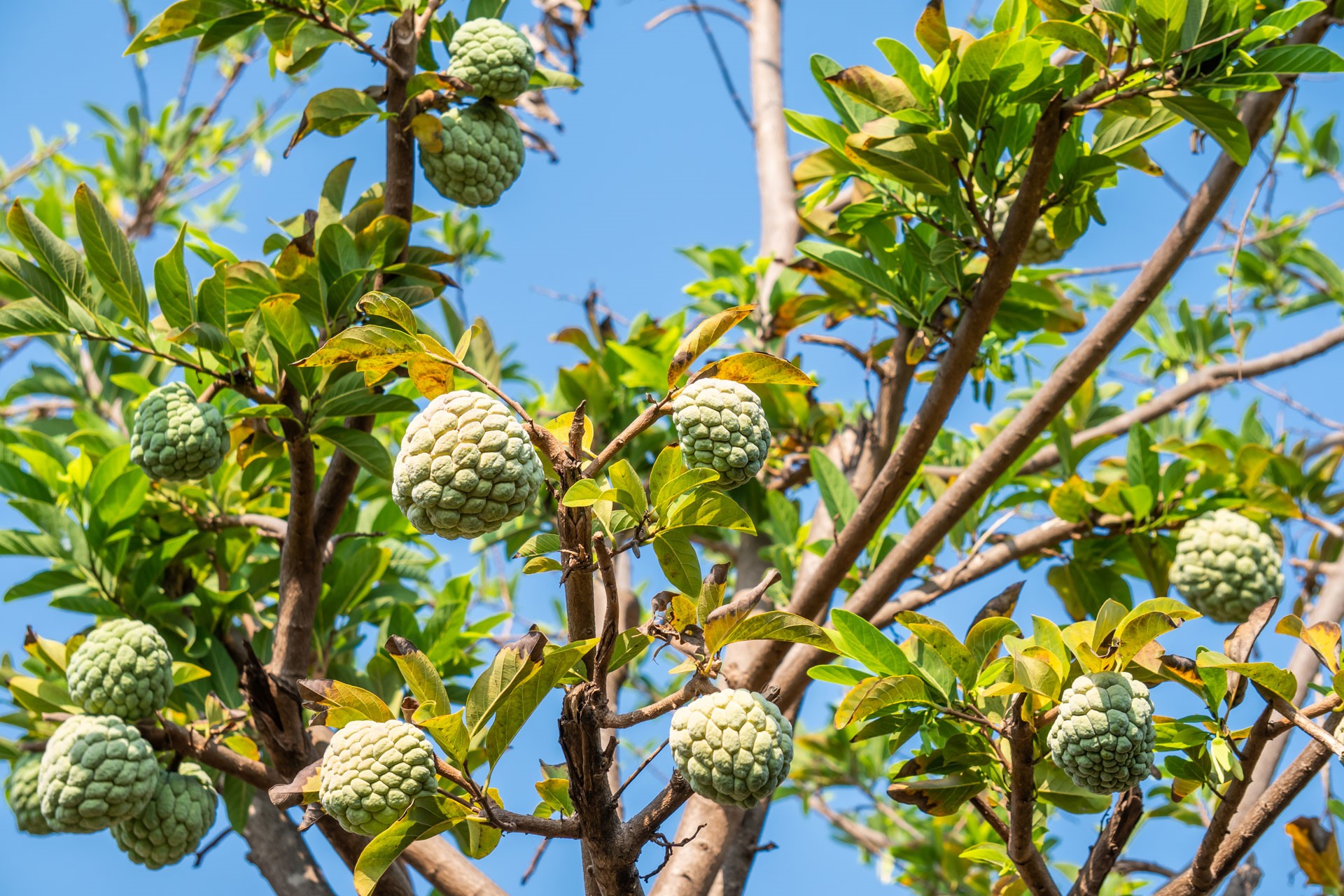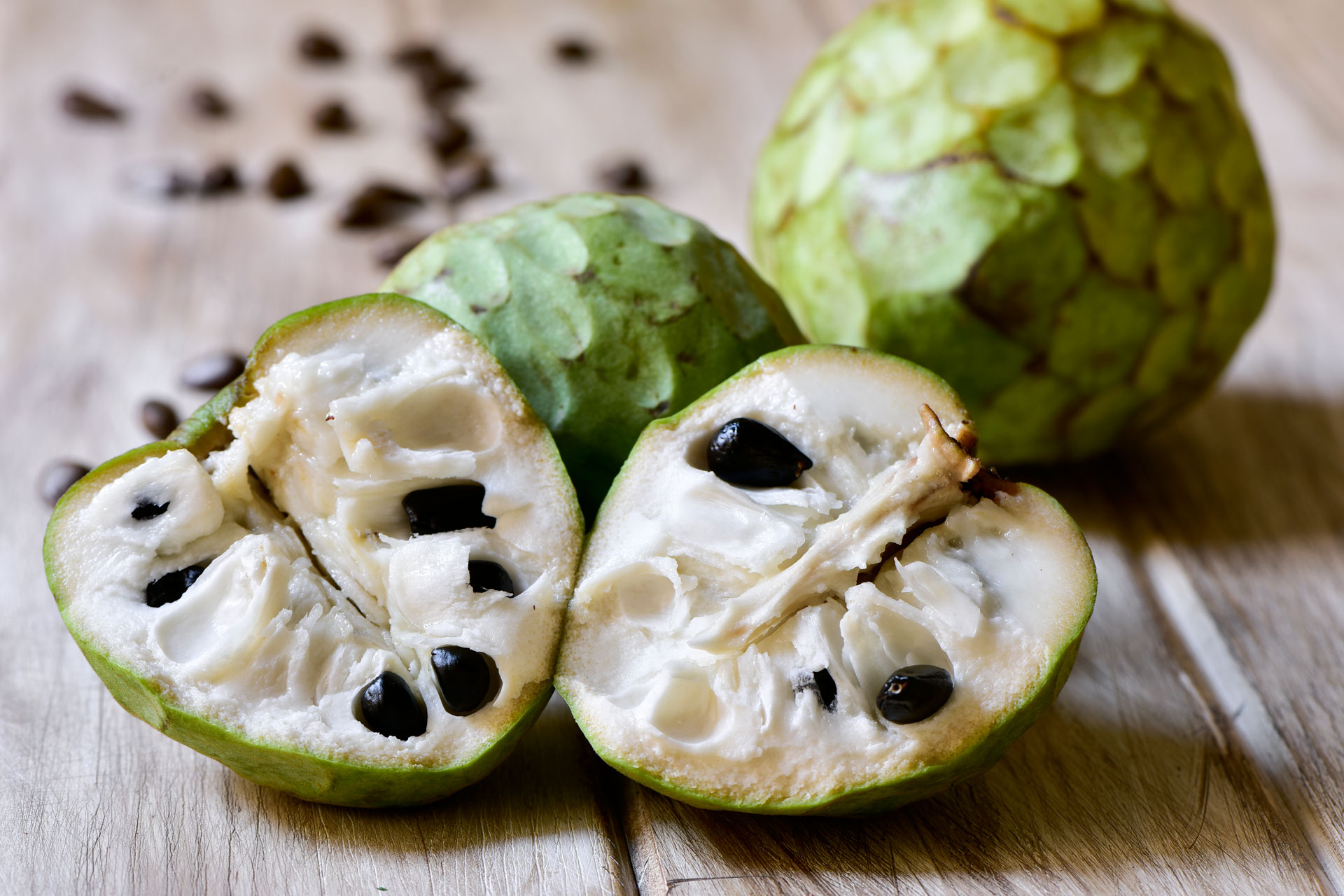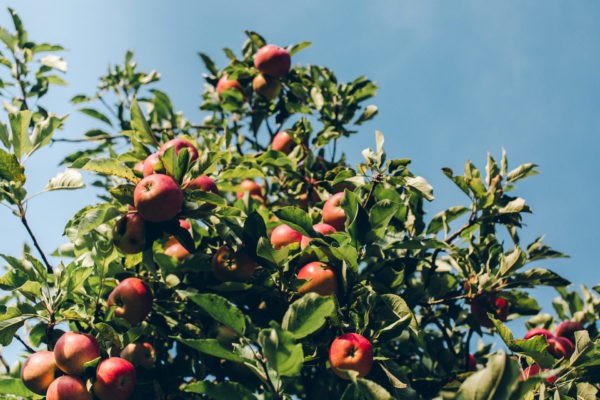What Are Custard Apples? And Are They Good For You?
By
1 year ago
This strange looking fruit is a nutritional powerhouse

Strolling around a farmer’s market, you may have spotted a curious, green, cone-shaped fruit with leathery skin. Well, turns out you’re looking at a custard apple: a tropical fruit native to the West Indies and South America. Also known as chirimoya or a sugar apple, this fruit is renowned for its super-sweet, creamy taste (hence the name) – but, unlike its custard namesake, it’s something of a superfood, packed with health benefits.
Custard Apples: Taste, Benefits & How To Eat Them
What Is A Custard Apple?
Although it may sound like an exciting new TikTok dessert, the custard apple is actually a type of fruit which has been around for hundreds of years. It originated in the Andes mountains in South America, and is grown in tropical areas with high altitudes. On the outside, it has olive green skin with curved protuberances, giving it a scaly appearance, and inside is filled with a white, creamy flesh with the consistency of syrup or ice cream.

Getty Images
What Do Custard Apples Taste Like?
Don’t be put off by their odd appearance: sugar apples have a very sweet taste which is similar to that of banana or pineapple. The flesh has a similar consistency to a ripe pear, with a creamy texture.
How Do You Eat Them?
First of all you need to remove the skin, as well as the seeds, which are not edible. Then, you can scoop out the flesh and eat it on its own, add it into a smoothie, incorporate it into a baked treat (think muffins or crumbles), or even add to savoury dishes – custard apples work well in certain stir fries or curries.
What Are The Health Benefits?
Packed with fibre, vitamins and minerals, the custard apple has plenty of health perks.
- Custard apples contain antioxidants, including kaurenoic acid, flavonoids, carotenoids, and vitamin C – these can help protect cells against oxidative stress, which can cause tissue and cell damage.
- They are high in vitamin B2 and lutein, which can help with eye health.
- They are packed with vitamin C, a nutrient that supports immunity by fighting infections and disease.
- They have a high fibre content, which is crucial for good digestive health, plus benefits heart health.
- With one cup containing nearly a quarter of our recommended daily allowance of B6, custard apples could help increase our mood too.
- Chirimoya is brimming with potassium, which has been linked with helping lower blood pressure.
Are There Any Negatives?
It’s important to note that custard apples should be eaten in moderation as they contain a small amount of a toxin called annonacin (like other fruits in the Annonaceae family). They are also high in sugar. The seeds should never be consumed.






